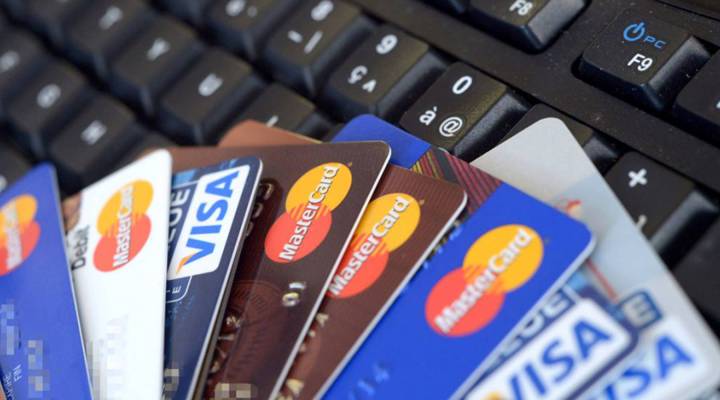
Why does everybody want me to check my credit score?

If you have a Chase credit card — and there are tens of millions of you out there — you may have received an email asking you to “sign into Chase Credit Journey now to review your credit score and a complete history of your recent alerts.” That’s right, Chase wants you to “journey” through your credit history. For free. And Chase isn’t the only one.
“Oh, my gosh, it seems like every month I’ve got three or four emails telling me that my credit score is updated and it’s time to check it,” said Nick Zahn, a geologist with the state of Maryland. Those emails come from “my credit card companies, from my bank occasionally and, of course, all the financial firms like Mint, Intuit and Credit Karma,” he said. “They’re all coming after me.”
Remember when we had to pay for credit scores? It wasn’t all that long ago. Now it seems everybody wants us to check our scores all the time. To understand how we got here, we need to go back to when credit scoring really took off — all the way back to the 1980s.
“It was the mad scientists in the bank headquarters competing against the relationship banker in the branch,” said Nick Clements, co-founder of the financial education site MagnifyMoney and former director of risk management at Citigroup. The data scientists thought they could measure credit risk better than the branch bankers who knew their customers, he said, and they were right. “Sadly, we are rather predictable when it comes to our credit behavior, and scoring models were more effective than one-off conversations,” Clements said.
Those models were secret, lest customers try to cheat the system by, say, falsifying their employment history or salary. But as that information got easier to verify and credit scores were more widely used, the secrecy no longer made sense. Then in the 2000s, fintech companies like Credit Karma saw a business opportunity in giving away credit scores. As one commercial for the company puts it, “Better credit scores give you better options, like a new loan. If you find that loan on Credit Karma, your lender pays us.”
“So it actually became, to a certain extent, a strategic threat to some of the banks, and they decided that they needed to get into this education game as well,” Clements said.
Now banks are playing catch-up. Chase first offered free credit scores to certain cardholders a few years ago, said Catherine Hogan, president of Chase branded cards, and recently expanded the service to everyone — even noncustomers. There are more than 100 million people in the country who are considered prime borrowers, Hogan said, “and so we are hopeful that providing these tools may help more people decide to become Chase customers.” Millions of current customers have signed up for Credit Journey since it launched, she said. Once they’re on the journey, Chase can sell them other products.
There’s another benefit to banks, said Christopher Peterson, financial services director at the Consumer Federation of America. Banks are liable for unauthorized charges, “and by providing these services free or packaging them along with a credit card, banks can give the consumer a way to not only get the credit card services, but also have some opportunities to monitor their credit and monitor whether or not they’ve been exposed to an identity theft,” he said.
So is all this messaging working? Peterson’s group found that about 57 percent of adults have accessed their credit score in the past year, up from about 50 percent four years ago. All the reminders are prompting Nick Zahn to check his credit more, though he doesn’t pay much attention to whose website he uses.
“It really doesn’t matter to me,” he said, and he hasn’t signed up for any new offers either.
There’s a lot happening in the world. Through it all, Marketplace is here for you.
You rely on Marketplace to break down the world’s events and tell you how it affects you in a fact-based, approachable way. We rely on your financial support to keep making that possible.
Your donation today powers the independent journalism that you rely on. For just $5/month, you can help sustain Marketplace so we can keep reporting on the things that matter to you.


















